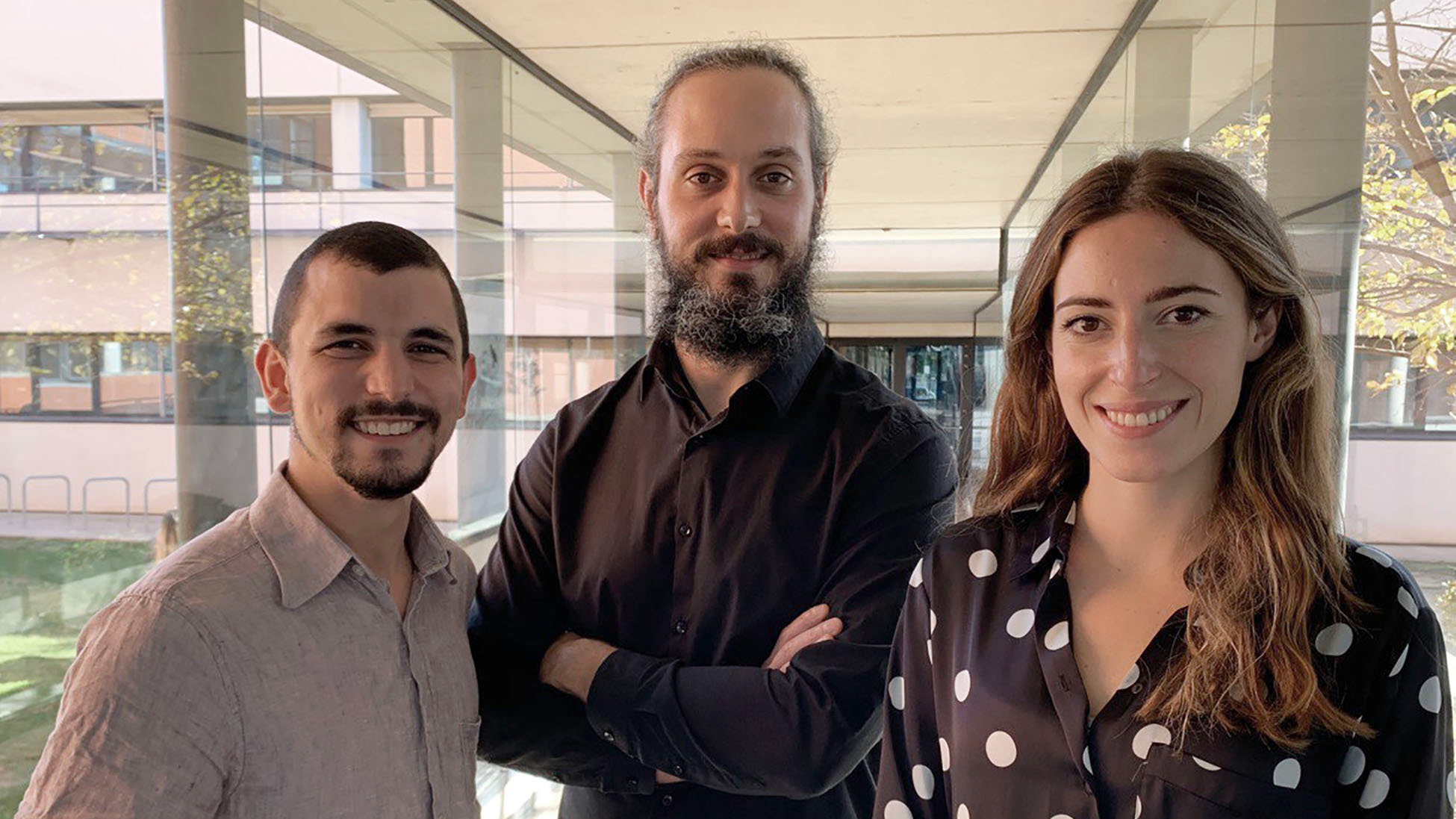From left to right, Carlos Prado, Salvador Cardona, Silvia Giménez.
The biotechnologist from the Institute of Molecular Science (ICMol) of the University of Valencia Silvia Giménez Santamarina is responsible for the NANOMEM TECH proposal, a business model in the field of Enabling Technologies that has just won the Award for Entrepreneurial Potential of Projects by Young Researchers Research 2020, promoted by RUVID and the AVI. The project includes the development of neuromorphic chips applicable to everyday devices.
The main objective of NANOMEM TECH, which starts from the doctoral thesis developed by Giménez Santamarina at ICMol, is the development of new materials with application in neuromorphic computing – which imitates the behaviour of the brain’s neural networks – and Artificial Intelligence (AI). The business model also includes the offer of scientific advisory services for the industrial scale manufacture of these materials. The team is made up of researchers Salvador Cardona, Medhi Yaghouti and Carlos Prado, all of them from ICMol, as well as Giménez Santamarina.
The unstoppable advance in Computer Science, AI and Big Data is really promising for Neuromorphic Engineering, a discipline little known outside the academic and scientific fields, oriented to the design of integrated circuits and the development of algorithms inspired by the neurobiological structures of the nervous system. “And a market niche still to be exploited”, says the biotechnologist. “Thanks to this branch and the multidisciplinary collaboration of physicists, chemists, mathematicians and computer scientists, we can work on the development of chips that function as neurons, that are capable of learning and making decisions based on prior knowledge, to be integrated into mobiles, televisions, computers, tablets, cars, etc.”, she adds.
The new materials proposed by NANOMEM TECH are versatile, highly energy efficient and capable of retaining and analysing information just as neurons in the human brain would. The project contemplates the development of technologies that minimise the energy consumption of new neuromorphic materials by up to 80%, and reduce the size of the processors by several orders of magnitude.
The jury, made up of experts from the Specialised Strategic Innovation Committees (CEIE) of the Valencian Agency for Innovation (AVI), from the university, business and Valencian technological institutes, has described the project as an “ambitious initiative, very advanced technologically and deeply innovative compared to other existing technologies on the market from large multinationals”.
Silvia Giménez wanted to highlight the value of the excellence research carried out in this research centre of the University of Valencia. “In our research community there are excellent ideas, with a lot of innovative potential, that need investment and specific training to get closer to the business world. For this reason, awards like this are especially important, since they promote the transfer of technology, from the university to the company, so necessary for the economic competitiveness and social advancement of our country”, she said.
The award is part of an initiative of RUVID, the Network of Valencian Universities for the Promotion of Research, Development and Innovation, and is funded by the Valencian Agency for Innovation (AVI). As a result of the award, the project will receive individualised mentoring with experts in entrepreneurship, will be able to develop a website to publicise the business initiative and will acquire a batch of books on entrepreneurship, all valued at € 2,000.
In addition to the RUVID member universities (University of Valencia, Polytechnic University of Valencia, University of Alicante, Jaume I University of Castelló, Miguel Hernández University of Elche, CEU Cardenal Herrera University and Catholic University of Valencia), this call has included with the collaboration of the Alternative Scientific Careers platform.


